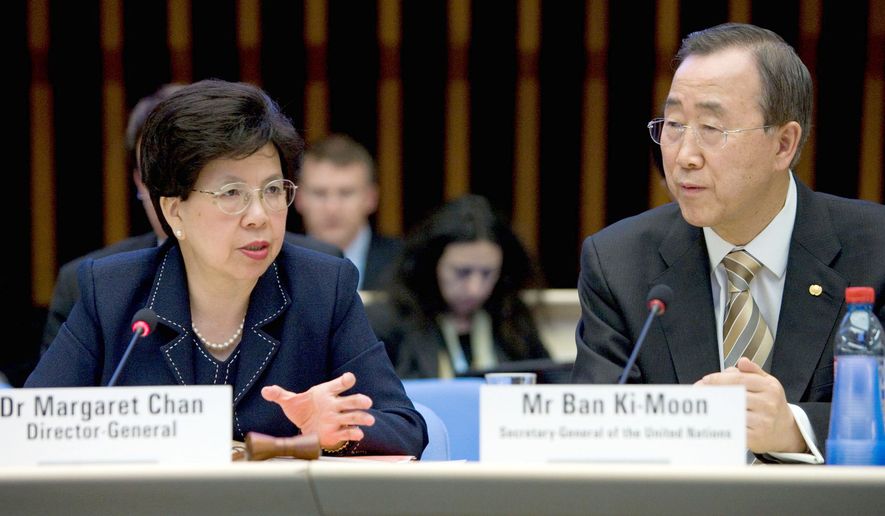Over the past decade, health issues have attained an unprecedented prominence at the United Nations.
Three health issues have risen to the highest level of discussion: noncommunicable diseases, such as diabetes, cancer and heart disease; the Ebola outbreak in West Africa; and on Sept. 21, the leaders of 193 countries came together to address one of the most pressing public health crises of today — the waning effectiveness of antibiotics and other antimicrobials.
If no action is taken, AMR (antimicrobial resistance) could kill as many as 10 million people globally every year by 2050, with a cumulative cost to the world economy as high as $100 trillion, according to a recent review commissioned by the United Kingdom government.
The focus on health in three U.N. high-level meetings illustrates the profound leadership and broad impact we have seen under the current U.N. Secretary-General Ban Ki-moon.
When he took office in 2007, nearly 9 million children died annually before their fifth birthday from conditions that could be prevented or treated with access to simple affordable interventions. As he leaves office, the world is in a different situation. Major progress has been made in saving the lives of mothers and children, thanks to the Every Woman Every Child initiative that he launched in 2010. Today, fewer than 6 million children die before their fifth birthday.
Progress has also been achieved in turning around the malaria, HIV/AIDS and tuberculosis epidemics; in combatting global health crises, such as those caused by the H1N1, Ebola and Zika viruses; and in polio eradication.
The secretary-general has catalyzed engagement on global health at international and national levels. He has relentlessly promoted health as a human right, advocating for increased access to medicines and health care for the most vulnerable communities in the world, and called for greater accountability in global health. He convened the United Nations High-Level Panel on Access to Medicines, a Commission on Information and Accountability for Women’s and Children’s Health, and a Commission on Health Employment and Economic Growth to help find solutions on these issues.
In addition, Ban Ki-moon has broadened the scope of health as a multisectoral concern — positioning major health issues as a responsibility beyond medical and science communities to engage all parts of government that sustain development and progress of countries. This is why AMR is on the agenda at the G20, the World Bank and the U.N. General Assembly.
The secretary-general’s concern for health capacity at the local level and his support for the World Health Organization’s work have been demonstrated numerous times when he joined me on country visits to impoverished communities and health care facilities. Specifically, his personal involvement in the polio-eradication campaign has been admirable. Whenever I had politically sensitive decisions to make, I knew he would always be there to take my call and give me profoundly wise advice.
On Dec. 31, Ban Ki-moon will pass the baton to his successor, and with it many health challenges that WHO and other U.N. agencies are still working to address. Health workers are still a target in many conflict zones today. Disease outbreaks that pose a risk of spreading quickly through international trade and travel will continue to threaten global security. Noncommunicable diseases have overtaken infectious diseases as the No. 1 killers worldwide.
These challenging health issues remain, but Ban Ki-moon has provided a way forward to address all of them. The Sustainable Development Goals adopted by the U.N. General Assembly in September 2015 give the international community an opportunity to work together across all sectors to improve the well-being of humanity. The current secretary-general has set a new bar for U.N. engagement in health issues. It will be essential for years to come.
Margaret Chan, M.D., is the seventh director-general of the World Health Organization.




Please read our comment policy before commenting.